“Caring for your Senior Cat: Unlock the Secrets to a Long and Happy Life!”
Introduction
Caring for a senior cat can be a rewarding experience. As cats age, they require special care and attention to ensure they remain healthy and happy. Senior cats may have different needs than younger cats, such as more frequent vet visits, special diets, and more frequent grooming. It is important to understand the needs of your senior cat and provide them with the best care possible. In this article, we will discuss tips and tricks for caring for a senior cat, including diet, exercise, grooming, and more. With the right care, your senior cat can live a long and happy life.
How to Create a Safe and Comfortable Environment for Your Senior Cat
Creating a safe and comfortable environment for your senior cat is essential for their health and wellbeing. As cats age, they may become more prone to illness and injury, so it is important to take extra precautions to ensure their safety. Here are some tips for creating a safe and comfortable environment for your senior cat:
1. Provide a comfortable bed. Senior cats may have difficulty getting up and down, so it is important to provide them with a comfortable bed that is easy to access. Consider a bed with a low entry point and a soft, supportive mattress.
2. Make sure the litter box is easily accessible. Senior cats may have difficulty getting in and out of the litter box, so it is important to make sure it is easily accessible. Consider placing the litter box in a low-traffic area and making sure it is not too far away from the cat’s bed.
3. Provide plenty of toys and activities. Senior cats may have difficulty getting around, so it is important to provide them with plenty of toys and activities to keep them entertained. Consider providing interactive toys, such as puzzle feeders, and providing scratching posts and cat trees for them to climb.
4. Make sure the home is free of hazards. Senior cats may be more prone to injury, so it is important to make sure the home is free of hazards. Consider securing any cords or wires that could be a tripping hazard, and make sure any furniture or appliances are stable and secure.
5. Provide regular veterinary care. Senior cats may be more prone to illness and injury, so it is important to provide them with regular veterinary care. Consider scheduling regular check-ups and vaccinations to ensure your cat is healthy and up-to-date on their vaccinations.
By following these tips, you can create a safe and comfortable environment for your senior cat. This will help ensure their health and wellbeing, and provide them with a happy and comfortable home.
The Benefits of Regular Vet Visits for Senior Cats
Regular vet visits are essential for senior cats, as they can help to detect and prevent health issues before they become serious. As cats age, they become more prone to certain diseases and conditions, and regular check-ups can help to identify any potential problems early on.
The first benefit of regular vet visits for senior cats is that they can help to detect any underlying health issues. During a check-up, the vet will perform a physical examination and take a detailed medical history. This will allow them to identify any potential problems, such as kidney or heart disease, that may not be immediately apparent. Early detection of these issues can help to ensure that the cat receives the appropriate treatment and care.
Another benefit of regular vet visits is that they can help to prevent health issues from developing. During a check-up, the vet will be able to assess the cat’s overall health and make any necessary recommendations for preventive care. This may include vaccinations, parasite control, and dietary changes. By taking these steps, the cat’s health can be maintained and any potential problems can be avoided.
Finally, regular vet visits can help to ensure that the cat is receiving the best possible care. During a check-up, the vet will be able to assess the cat’s overall health and make any necessary recommendations for treatment. This may include medications, supplements, or lifestyle changes. By following the vet’s advice, the cat’s health can be maintained and any potential problems can be avoided.
In conclusion, regular vet visits are essential for senior cats. They can help to detect and prevent health issues before they become serious, and ensure that the cat is receiving the best possible care. By taking these steps, the cat’s health can be maintained and any potential problems can be avoided.
Nutritional Needs of Senior Cats: What to Feed and When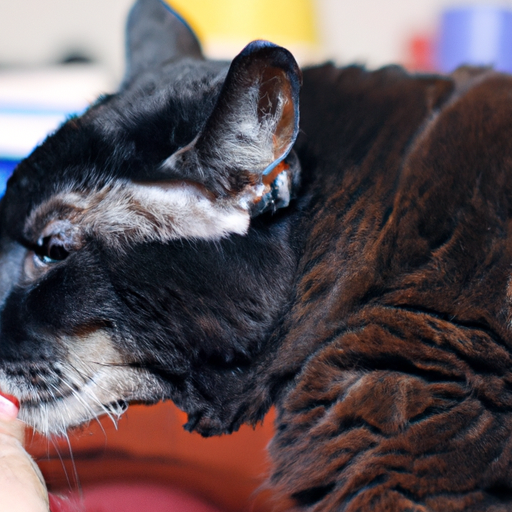
As cats age, their nutritional needs change. Senior cats require a diet that is tailored to their specific needs in order to maintain their health and well-being. It is important to understand the nutritional needs of senior cats and to provide them with the right food at the right time.
When it comes to feeding senior cats, it is important to provide them with a diet that is high in protein and low in fat. Senior cats need more protein than younger cats in order to maintain muscle mass and to support their immune system. It is also important to provide them with a diet that is rich in essential fatty acids, such as omega-3 and omega-6, as these are important for maintaining healthy skin and coat.
In addition to providing a diet that is high in protein and low in fat, it is also important to provide senior cats with a diet that is rich in antioxidants. Antioxidants help to protect the body from the damage caused by free radicals, which can lead to age-related diseases. Foods that are rich in antioxidants include fruits and vegetables, as well as certain types of fish.
It is also important to provide senior cats with a diet that is low in sodium. Too much sodium can lead to dehydration and other health problems. It is best to avoid foods that are high in sodium, such as processed foods and canned foods.
Finally, it is important to provide senior cats with a diet that is high in fiber. Fiber helps to keep the digestive system functioning properly and can help to reduce the risk of constipation. Foods that are high in fiber include whole grains, fruits, and vegetables.
By providing senior cats with a diet that is tailored to their specific needs, you can help to ensure that they remain healthy and happy. It is important to remember that cats are individuals and that their nutritional needs may vary. If you have any questions or concerns about your cat’s diet, it is best to consult with your veterinarian.
Understanding the Signs of Pain and Illness in Senior Cats
As cats age, they can become more prone to illness and pain. It is important for pet owners to be aware of the signs of pain and illness in senior cats so that they can provide the best possible care for their beloved pet.
One of the most common signs of pain and illness in senior cats is a change in behavior. Cats that are in pain may become more withdrawn and less active than usual. They may also become more vocal, meowing more often than usual. Additionally, cats in pain may become more aggressive or irritable.
Another sign of pain and illness in senior cats is a change in appetite. Cats that are in pain may eat less than usual or may stop eating altogether. They may also become picky eaters, refusing to eat certain foods.
Changes in grooming habits can also be a sign of pain and illness in senior cats. Cats that are in pain may groom themselves less often than usual, resulting in a dull coat and matted fur. Additionally, cats in pain may groom themselves excessively, leading to bald patches or skin irritation.
Finally, changes in litter box habits can be a sign of pain and illness in senior cats. Cats that are in pain may have difficulty getting in and out of the litter box, or may avoid the litter box altogether. They may also urinate or defecate outside of the litter box, or may urinate or defecate more frequently than usual.
If you notice any of these signs of pain and illness in your senior cat, it is important to take them to the vet as soon as possible. Early diagnosis and treatment can help to ensure that your cat is comfortable and healthy.
How to Keep Your Senior Cat Active and Engaged
As cats age, they may become less active and less engaged in their environment. This can be a sign of aging, but it can also be a sign of boredom or depression. To ensure your senior cat remains active and engaged, there are several steps you can take.
First, provide your cat with plenty of toys and activities to keep them entertained. Cat trees, scratching posts, and interactive toys are all great ways to keep your cat active and engaged. You can also provide your cat with a variety of treats and food puzzles to stimulate their minds.
Second, make sure your cat has plenty of places to explore. Cats love to explore and climb, so make sure your home is equipped with plenty of places for your cat to explore. This could include shelves, cat trees, and other elevated surfaces.
Third, provide your cat with plenty of mental stimulation. This can include playing with your cat, teaching them tricks, or providing them with puzzle toys. You can also provide your cat with a variety of scents and textures to explore.
Finally, make sure your cat is getting enough exercise. This can include playing with your cat, taking them for walks, or providing them with a variety of toys to chase and explore.
By following these steps, you can ensure your senior cat remains active and engaged. With the right environment and activities, your cat can remain healthy and happy for years to come.
Q&A
Q1: What are some tips for caring for a senior cat?
A1: Some tips for caring for a senior cat include providing a comfortable and safe environment, scheduling regular vet visits, providing a healthy diet, providing plenty of mental and physical stimulation, and monitoring changes in behavior.
Q2: How can I make my senior cat more comfortable?
A2: To make your senior cat more comfortable, provide a warm and cozy bed, provide plenty of soft and comfortable places to rest, and make sure the litter box is easily accessible. Additionally, provide plenty of toys and activities to keep your cat mentally and physically stimulated.
Q3: What type of diet should I feed my senior cat?
A3: Senior cats should be fed a diet that is high in protein and low in carbohydrates. Additionally, look for foods that are specifically formulated for senior cats, as they may contain additional nutrients that are beneficial for older cats.
Q4: How often should I take my senior cat to the vet?
A4: Senior cats should be taken to the vet at least once a year for a check-up. Additionally, if you notice any changes in behavior or health, it is important to take your cat to the vet as soon as possible.
Q5: What are some signs that my senior cat may be in pain?
A5: Some signs that your senior cat may be in pain include decreased appetite, changes in behavior, difficulty moving, and excessive grooming. If you notice any of these signs, it is important to take your cat to the vet as soon as possible.
Conclusion
Caring for a senior cat can be a rewarding experience. With the right diet, exercise, and medical care, your senior cat can live a long and healthy life. It is important to keep an eye on your cat’s health and behavior, and to take them to the vet regularly for check-ups. With patience and love, you can ensure that your senior cat is comfortable and happy in their golden years.



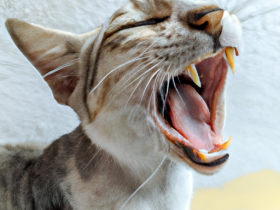
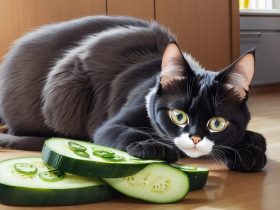
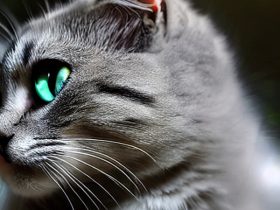
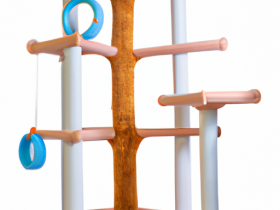
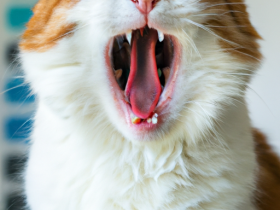
Leave a Reply
View Comments